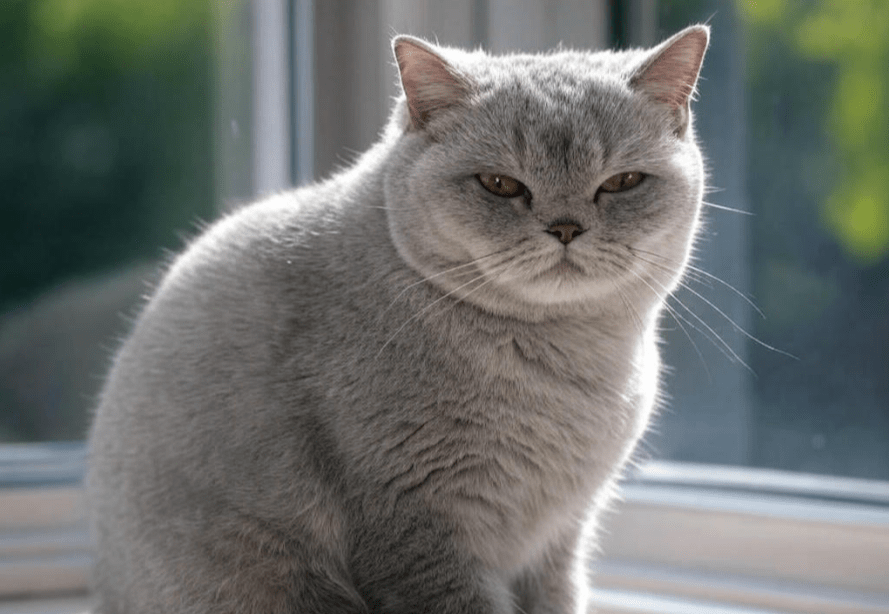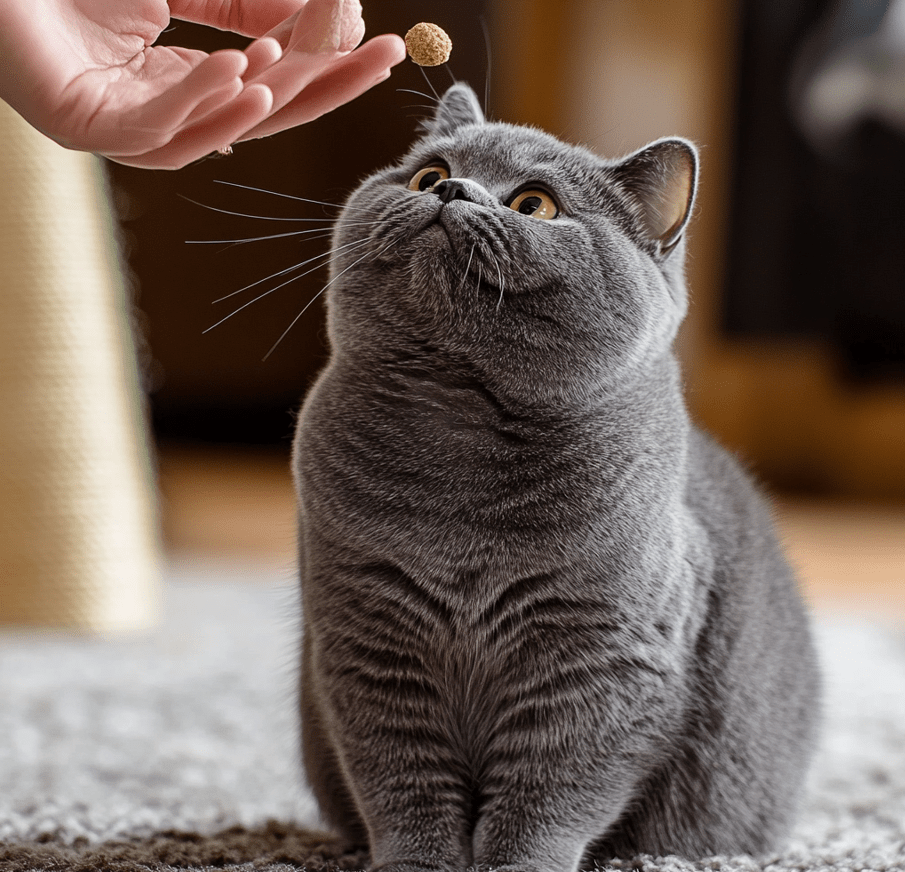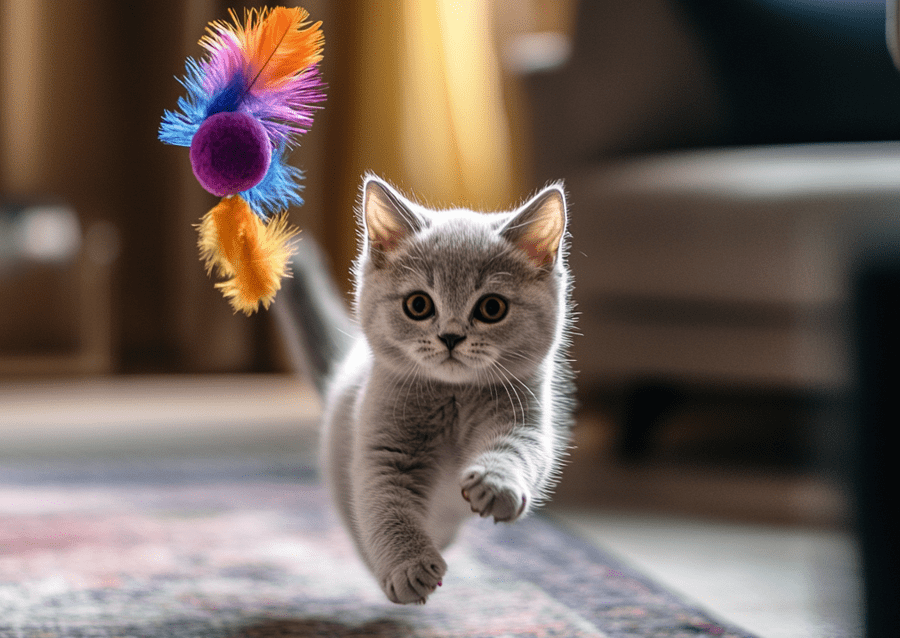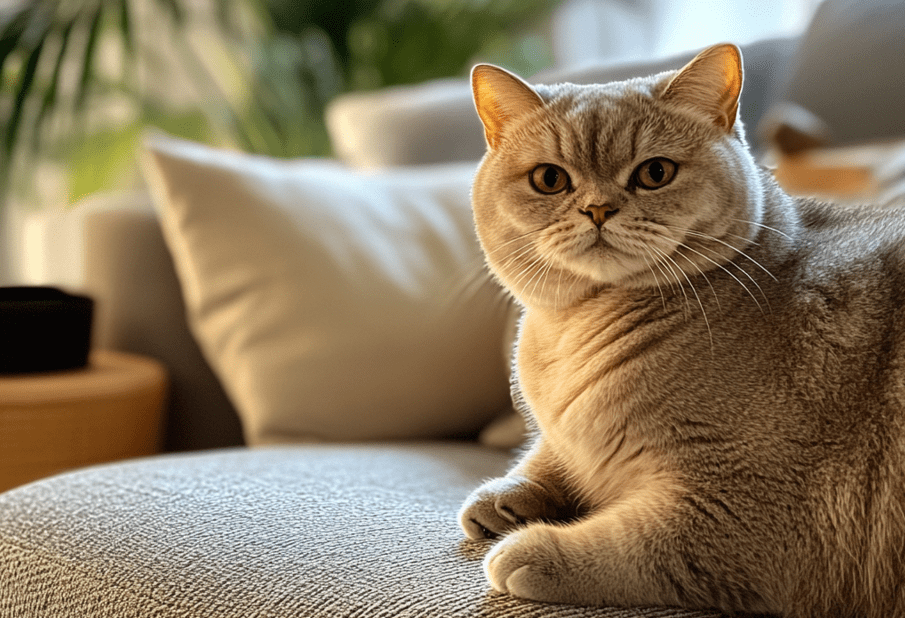
British Shorthair cats, with their plush coats and charming personalities, are beloved companions for many pet owners. However, like all cats, British Shorthairs are prone to certain health issues, including gingivitis, a common dental condition that can cause discomfort and lead to more severe problems if left untreated. Managing gingivitis in British Shorthairs naturally is not only possible but can also improve your cat’s overall health and quality of life. In this comprehensive guide, we’ll explore the causes, symptoms, and natural strategies to prevent and treat gingivitis in British Shorthairs, ensuring your feline friend stays happy and healthy.
What is Gingivitis in British Shorthairs?
Gingivitis is the inflammation of the gums, often caused by the buildup of plaque and tartar on a cat’s teeth. In British Shorthair cats, gingivitis can be particularly concerning due to their predisposition to dental issues. If untreated, gingivitis can progress to periodontitis, a more severe condition that may lead to tooth loss, bone damage, and even systemic health problems affecting organs like the heart and kidneys.
Why Are British Shorthairs Prone to Gingivitis?
British Shorthairs have unique physical traits, including a broad, round head and a compact jaw structure, which can sometimes contribute to dental crowding or improper tooth alignment. These factors make it easier for food particles and bacteria to accumulate, leading to plaque buildup. Additionally, their calm and sedentary nature may mean less natural chewing activity, which can exacerbate dental issues.
Other contributing factors include:
Diet: Diets high in carbohydrates or lacking in dental-supporting nutrients can promote plaque buildup.
Genetics: Some British Shorthairs may inherit a predisposition to dental disease.
Immune Response: Stress or underlying health conditions can weaken the immune system, making gums more susceptible to inflammation.
Lack of Dental Care: Without regular oral hygiene, plaque hardens into tartar, worsening gingivitis.
Recognizing the Signs of Gingivitis in British Shorthairs
Early detection is key to managing gingivitis naturally. British Shorthair owners should watch for the following symptoms:

Red or Swollen Gums: Healthy gums are pale pink. Red, inflamed gums are a hallmark of gingivitis.
Bad Breath: Persistent halitosis is often a sign of bacterial buildup.
Difficulty Eating: Your cat may chew on one side, drop food, or avoid hard kibble.
Excessive Drooling: Drooling, especially with blood-tinged saliva, can indicate gum irritation.
Pawing at the Mouth: This behavior suggests discomfort or pain.
Behavioral Changes: Irritability, lethargy, or reduced grooming may signal dental discomfort.
If you notice these signs, consult a veterinarian to confirm gingivitis and rule out other conditions like stomatitis or tooth resorption, which are also common in British Shorthairs.
Natural Strategies to Manage Gingivitis in British Shorthairs
Managing gingivitis naturally involves a combination of preventive care, dietary adjustments, and holistic remedies. Below, we outline actionable steps to keep your British Shorthair’s gums healthy without relying solely on invasive treatments.
1. Establish a Dental Hygiene Routine
Regular dental care is the cornerstone of preventing and managing gingivitis. Here’s how to incorporate it into your British Shorthair’s routine:
Brush Their Teeth: Use a cat-specific toothbrush and enzymatic toothpaste (never human toothpaste, which is toxic to cats). Start slowly, introducing brushing over weeks to avoid stress. Aim for daily brushing, but even 2–3 times a week can make a difference.
Dental Wipes or Gels: If brushing is challenging, dental wipes or gels can reduce plaque. Look for products with natural ingredients like chlorophyll or aloe vera.
Water Additives: Natural dental water additives can help break down plaque and freshen breath. Ensure they’re vet-approved and free from harmful chemicals.
2. Optimize Their Diet
Diet plays a critical role in dental health. A natural, species-appropriate diet can reduce plaque and support gum health.
Raw or Wet Food: Raw diets, such as those mimicking a cat’s natural prey, promote chewing and saliva production, which cleans teeth. Wet food is also less likely to stick to gums compared to dry kibble.
Dental-Specific Diets: Some vet-recommended foods are designed to scrape plaque during chewing. Look for natural options with minimal fillers.
Avoid High-Carb Diets: Carbohydrates feed oral bacteria, worsening plaque. Choose grain-free or low-carb formulas.
Bone Broth: Adding bone broth to meals provides nutrients like collagen, which supports gum tissue health.
3. Incorporate Dental Chews and Toys
Chewing is a natural way for cats to clean their teeth. For British Shorthairs, which may not be as active as other breeds, dental chews and toys can stimulate oral health:
Raw Bones: Small, raw poultry bones (under vet supervision) encourage chewing and scrape plaque. Never offer cooked bones, which can splinter.
Dental Chews: Look for natural chews with ingredients like seaweed or parsley, which combat bacteria.
Textured Toys: Rope or rubber toys designed for chewing can massage gums and reduce plaque.
4. Use Natural Supplements
Certain supplements can reduce inflammation and support oral health in British Shorthairs:
Coconut Oil: Known for its antibacterial properties, a small amount (1/8 tsp per day) can be mixed into food to combat oral bacteria.
Omega-3 Fatty Acids: Fish oil or krill oil reduces gum inflammation and supports overall health.
Probiotics: Oral-specific probiotics for cats can balance mouth bacteria, reducing plaque formation.
Coenzyme Q10: This antioxidant supports gum tissue repair and may reduce inflammation.
Always consult a veterinarian before adding supplements to ensure they’re safe for your British Shorthair.
5. Herbal Remedies for Gum Health

Herbal remedies can complement other natural treatments:
Aloe Vera: Diluted aloe vera gel (pet-safe) can be applied to gums to soothe inflammation.
Chamomile: A weak chamomile tea rinse can calm irritated gums due to its anti-inflammatory properties.
Calendula: This herb promotes tissue healing and can be used in vet-approved oral rinses.
Caution: Only use herbs under veterinary guidance, as some are toxic to cats in high doses.
6. Regular Veterinary Checkups
While natural remedies are effective, professional oversight is essential. Schedule dental checkups every 6–12 months. Your vet may recommend:
Professional Cleanings: Even with natural care, some British Shorthairs need periodic cleanings to remove tartar.
X-rays: To check for underlying issues like tooth resorption, common in this breed.
Bloodwork: To rule out systemic conditions contributing to gingivitis, such as kidney disease.
A vet can also assess whether natural remedies are sufficient or if medication is needed for advanced cases.
7. Stress Management
Stress can weaken a British Shorthair’s immune system, exacerbating gingivitis. Since this breed is sensitive to environmental changes, create a calm, enriching environment:
Safe Spaces: Provide cozy hiding spots or perches.
Playtime: Engage your cat with toys to reduce anxiety.
Pheromone Diffusers: These can promote relaxation, indirectly supporting immune health.
Preventing Gingivitis in British Shorthairs
Prevention is always better than treatment. Here are proactive steps to keep your British Shorthair’s gums healthy:
Start Early: Introduce dental care to kittens to build lifelong habits.
Monitor Diet: Choose high-quality, dental-friendly foods from an early age.
Regular Inspections: Check your cat’s mouth weekly for signs of redness or tartar.
Hydration: Ensure access to fresh water to promote saliva production, which naturally cleans teeth.
Genetic Screening: If possible, learn about your cat’s dental history from the breeder to anticipate risks.
Common Myths About Gingivitis in British Shorthairs
Let’s debunk some misconceptions that can hinder effective care:
Myth: “Cats don’t need dental care like humans.”
Fact: Cats, including British Shorthairs, require regular oral hygiene to prevent disease.
Myth: “Dry food cleans teeth.”
Fact: Most kibble is too soft to scrape plaque effectively and may contribute to tartar if high in carbs.
Myth: “Gingivitis always requires surgery.”
Fact: Early-stage gingivitis can often be managed naturally with consistent care.
When to Seek Veterinary Intervention

While natural remedies are powerful, advanced gingivitis may require professional treatment. Contact your vet if your British Shorthair shows:
1.Severe gum bleeding or pus
2.Refusal to eat for over 24 hours
3.Extreme lethargy or fever
4.Loose or broken teeth
In such cases, your vet may recommend antibiotics, pain relief, or, in severe cases, tooth extraction. Natural care can then be used to support recovery and prevent recurrence.
A British Shorthair’s Journey to Healthy Gums
Meet Bella, a 5-year-old British Shorthair who struggled with gingivitis. Her owner, Sarah, noticed Bella drooling and avoiding kibble. A vet confirmed moderate gingivitis. Instead of immediate surgery, Sarah implemented natural strategies:
Diet Shift: Bella transitioned to a raw diet with dental kibble as treats.
Daily Brushing: Sarah used enzymatic toothpaste, starting with short sessions.
Supplements: Bella received omega-3s and a probiotic powder.
Herbal Rinse: A vet-approved chamomile rinse soothed Bella’s gums.
Within three months, Bella’s gums were less inflamed, and her breath improved. Regular vet checkups ensured no underlying issues persisted. Bella’s story shows how dedication to natural care can transform a British Shorthair’s dental health.
Conclusion

Managing gingivitis in British Shorthairs naturally is a rewarding way to ensure your cat’s comfort and longevity. By combining a dental hygiene routine, a nutrient-rich diet, natural supplements, and regular veterinary care, you can prevent and treat gingivitis effectively. British Shorthairs, with their endearing qualities, deserve the best care possible, and a healthy mouth is a vital part of their well-being.
Take the first step today—inspect your British Shorthair’s gums, introduce a dental treat, or consult your vet for personalized advice. With patience and consistency, you’ll help your feline friend enjoy a pain-free, vibrant life. Have questions or tips about caring for your British Shorthair’s dental health? Share them with fellow cat lovers to build a community of healthy, happy pets!




